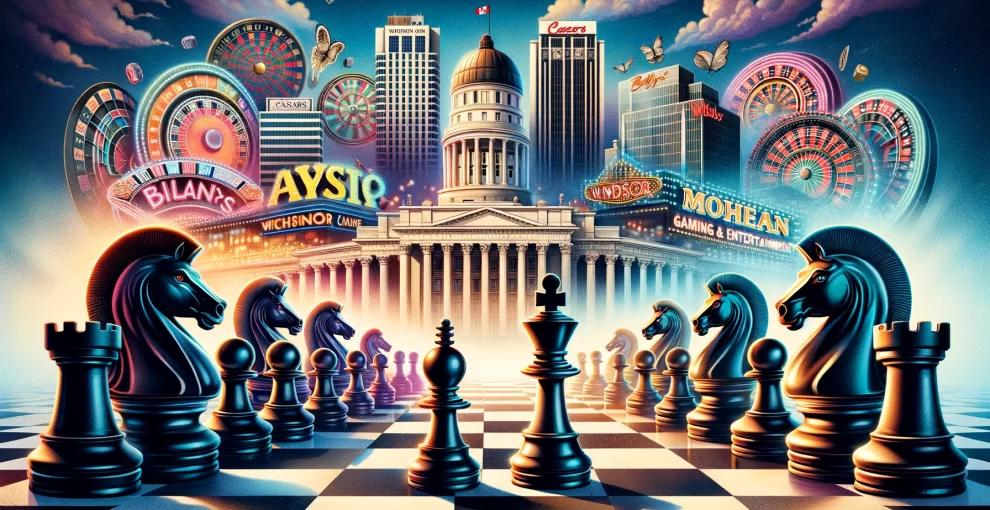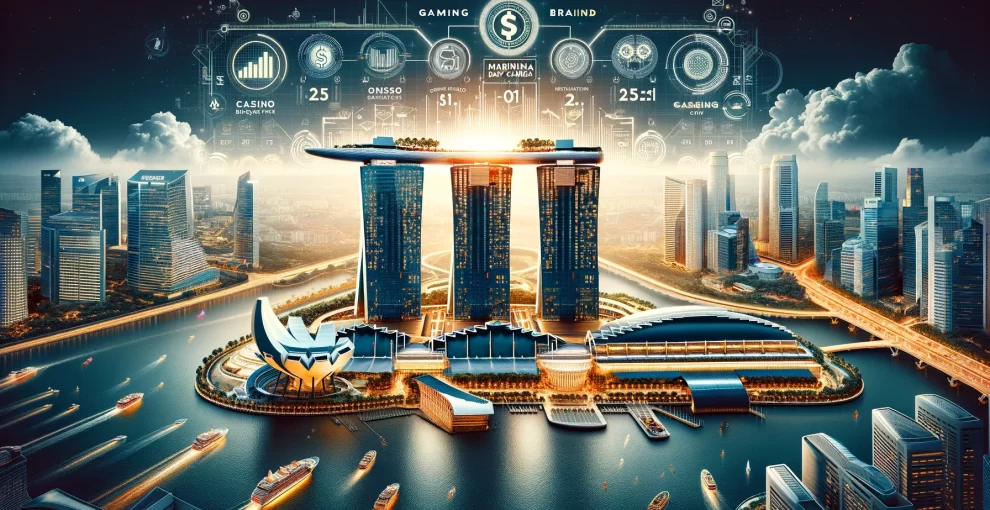In the competitive world of casino operations in Windsor, Ontario, a high-stakes battle is underway involving major industry players. Caesars Entertainment, a longstanding leader with a three-decade legacy at its Windsor location, is facing new challengers in the fight to maintain control over its cherished venue. This development marks the first instance Caesars has encountered direct competition for the Windsor casino’s operating rights, highlighting a significant shift in the sector’s dynamics.
Industry Giants Clash for Control
The Ontario Lottery and Gaming Corp. (OLG), the regulatory body owning the rights to Caesars Windsor, finds itself at a crossroads, entertaining bids from not just Caesars but also Bally’s Corporation and Mohegan Gaming & Entertainment. These bids signal a pivotal moment that could redefine casino operations in the region.
A Decision Looming on the Horizon
Insider sources suggest that OLG’s decision on the future operator of Windsor’s casino could come as early as the latter half of this year, with potential changes slated for 2025. This decision carries substantial implications for Caesars, a company that has strategically focused on highly profitable managed casino operations, including venues owned by OLG and various Native American Tribes.
The Strategic Importance of Windsor for Caesars
For Caesars, the Windsor location is more than just another casino; it’s a critical asset. Its proximity to the U.S. border makes it an invaluable part of Caesars’ portfolio, serving as a strategic counterbalance to commercial casinos in Detroit. A shift in operatorship could not only affect Caesars but also impact the local economy and tourism in Windsor and Ontario at large.
The Brand Power Debate
The brand recognition of Caesars stands as a significant factor in this competition. While Bally’s and Mohegan boast extensive operations across the U.S. and internationally, the unique brand equity of Caesars is seen as crucial for drawing visitors and revitalizing Windsor’s appeal as a prime destination.
Historical Context and Financial Implications
The history between Caesars and OLG, particularly the controversy surrounding the awarding of casino permits near Niagara Falls in 2018, adds layers of complexity to the current situation. Additionally, the financial stakes are high, with the cost of rebranding the Windsor casino estimated at nearly $60 million—a sum both Bally’s and Mohegan are capable of covering.
Caesars’ Unique Advantages
Despite the competition, Caesars’ extensive loyalty program, coupled with its expertise in iGaming and sports wagering, positions it as a formidable contender for retaining the Windsor license. These assets, along with the casino’s contribution to Windsor’s annual budget, are critical considerations for regulators weighing the decision.
As the Ontario Lottery and Gaming Corp. deliberates on this crucial choice, the outcome will undoubtedly have lasting implications for Caesars, its competitors, and the broader casino and gaming industry in Ontario.


